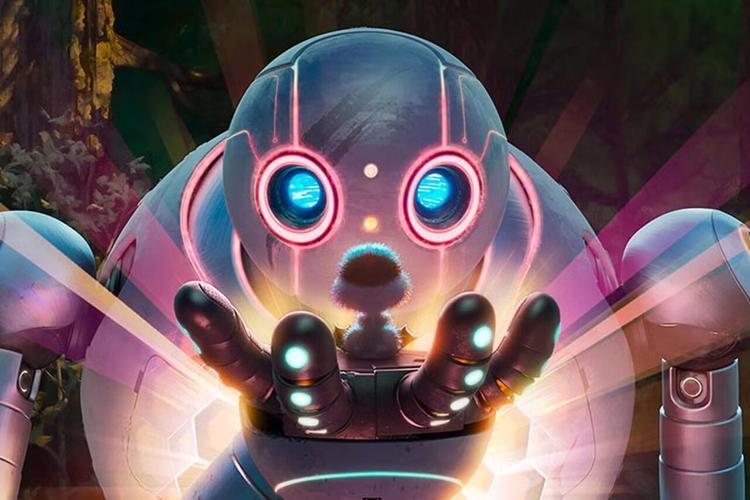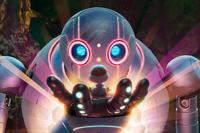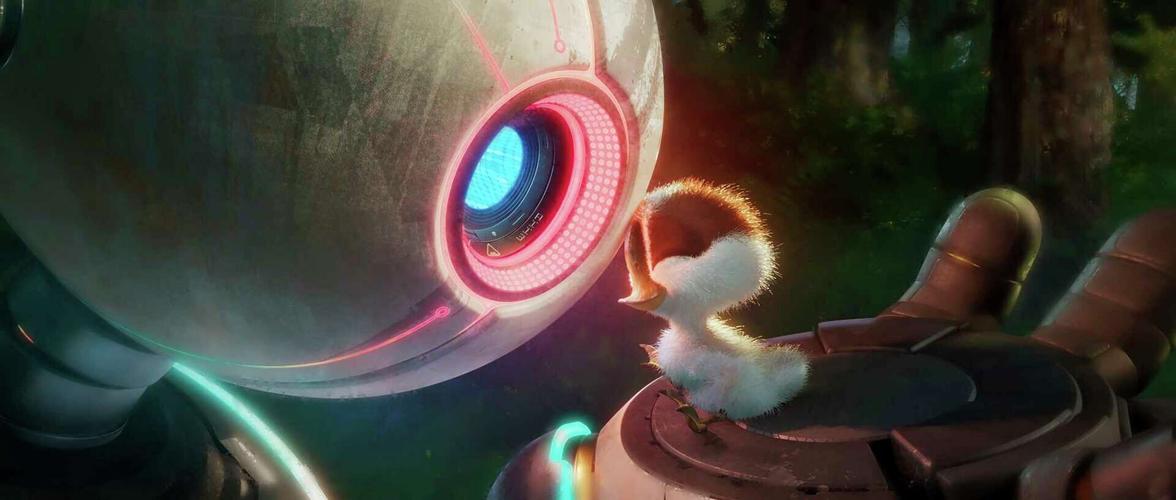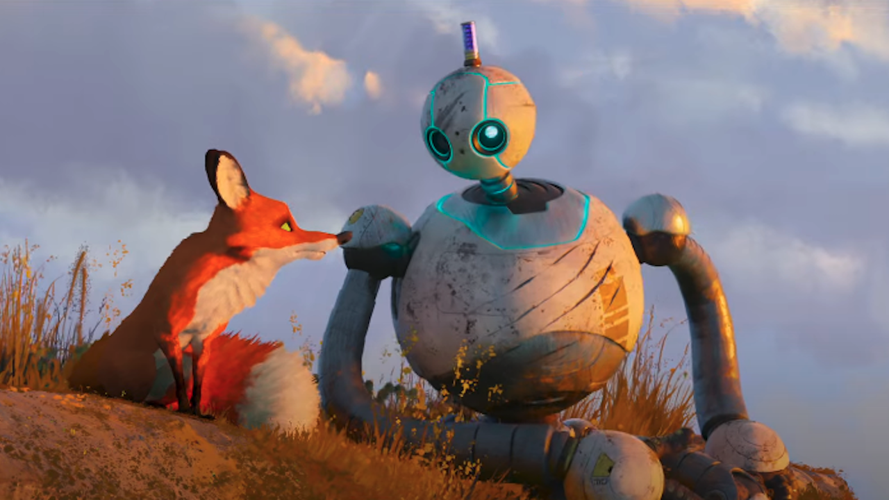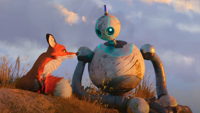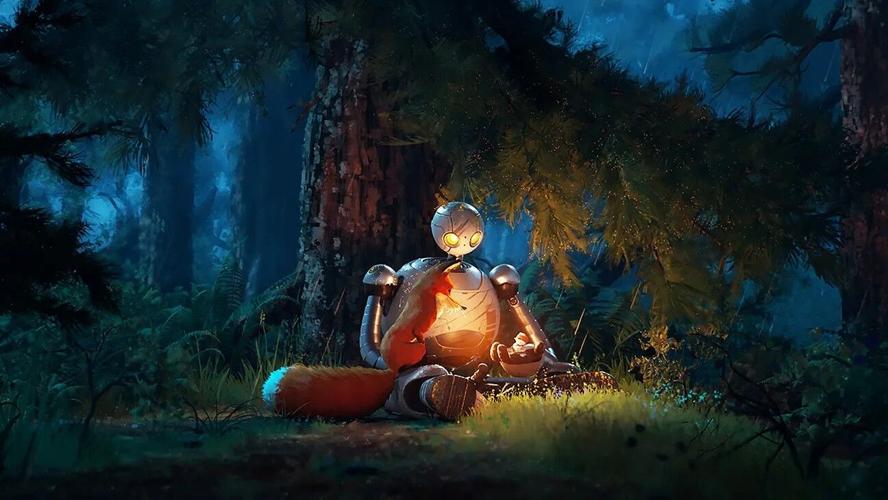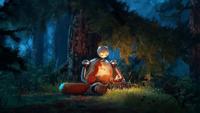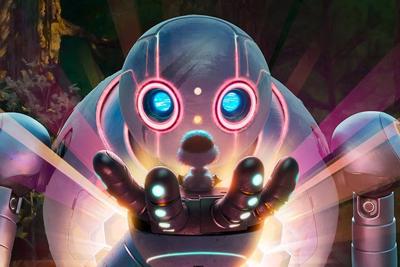This is an adaptation of a 2016 children's book by Peter Brown. It was written and directed by Chris Sanders and if you're familiar with Sanders' previous films, then it becomes obvious why he would be attracted to the material here. Sanders worked as an artist on various Disney films in the 1990's, including The Lion King (1994). However, his first film as director was Lilo & Stitch (2002), which is about a life-form that is an alien, dropped in an environment where it doesn't fit in, but it gets adopted into a makeshift family. Sanders also directed How to Train Your Dragon (2010) and The Call of the Wild (2020), which were about people connecting with nature and specifically a certain type of animal, if not multiple animals. All of those elements from his 2002 flick to his 2020 film are present in Brown's story. Instead of an alien being dropped in an environment where it doesn't fit in, here it's an artificially intelligent robot. There is a person connecting with nature and specifically a certain type of animal, but replace a person with a robot and replace the dog in The Call of the Wild with a baby goose.
Half-way through this film, what came to mind wasn't any of Sanders' previous work. What came to mind was The Jungle Book (1967). The Disney adaptation of Rudyard Kipling's book was about a human boy being raised by animals. Literally, it's about an inter-species relationship, which can be a metaphor for interracial or intercultural relationships. Sanders is basically continuing that same metaphor, but instead of a human being raised by a wolf, here it's a goose being raised by a robot. At first, we see the baby goose acting more like an electronic machine, but, as the film goes along, the robot begins behaving like the animals. Since the animals become anthropomorphized, the robot is actually behaving more like a human. The ending of The Jungle Book was about each creature or each life-form going back to where they belong or where they most fit in. Ostensibly, that's where this film is going, but this film posits the question of what if both life-forms don't belong anywhere or don't fit in anywhere.

Lupita Nyong'o (Black Panther and The Jungle Book) stars as the voice of Roz, the helper robot that gets lost on a deserted island. It's deserted because it doesn't have any humans living on it. However, it's full of wild animals from birds to bears and everything in between. In fact, one of the animals accidentally activate Roz. Normally, Roz is meant to be given tasks from humans that she is supposed to complete. Without any humans, Roz becomes devoid of purpose but also desperate to find a purpose or a task that she can complete. As a result, she has to change her own programming to adapt. This makes her incompatible with the other robots that she'll later encounter.
Kit Connor (Heartstopper and Rocketman) plays the voice of Brightbill, an orphaned goose who Roz finds. He imprints upon Roz and considers her to be his mother. Roz considers him not much more than a task to be completed. He wants to integrate with other geese and fit in with them, but the other geese bully him because he's being raised by Roz whom the other geese think is a monster. It's a form of xenophobia. Brightbill is also considered a runt who is smaller and isn't as coordinated. In effect, he becomes an outcast, much in the way that Roz becomes an outcast among her fellow robots.

Pedro Pascal (The Last of Us and The Mandalorian) co-stars as the voice of Fink, a sly fox who is also an outcast on the island. Nobody really likes him, mainly because he is sly. He's always being sneaky, often in attempts to get food. He threatens to eat the bird eggs, like the one Brightbill was in. It makes sense why he would then not be popular with the birds. However, it's hinted there are other reasons for his loneliness or isolation. He too seemed to have been the runt of his family and not orphaned but probably abandoned. He remarks that he's never experienced love from anyone, which likely would have started with his family. We do see from other animals like the mother possum, voiced by Catherine O'Hara (Beetlejuice Beetlejuice and Schitt's Creek), that it's easy for a baby to be abandoned here.
This film can be seen as outcasts or those who might be overlooked and brushed aside coming together to form their own makeshift family. This is something that could be a metaphor or applied to so many outsider groups, such as the LGBTQ community. However, a later strain of this story emerges that targets this idea of all groups stopping their hate of one another and learning to work and even live together. This metaphor falls apart when you're talking about predator animals that literally need to eat the other animals for food, but it goes against this broader idea of xenophobia and fighting against it. Sanders' film does so with a kind of Noah's Ark moment. Instead of a flood, it's a snowstorm and instead of a huge boat, it's a huge hut.

The animation is beautiful and the writing is funny. The direction is such that the central relationships feel very solid. Nyong'o, Connor and Pascal all give really great vocal performances. There are still a few animated films left to see this year, but, currently, it is the best animated film of 2024. I would even rank it above Inside Out 2, even though this film likely won't make as much money as that Pixar blockbuster.
Rated PG for action and peril.
Running Time: 1 hr. and 41 mins.
In theaters.

